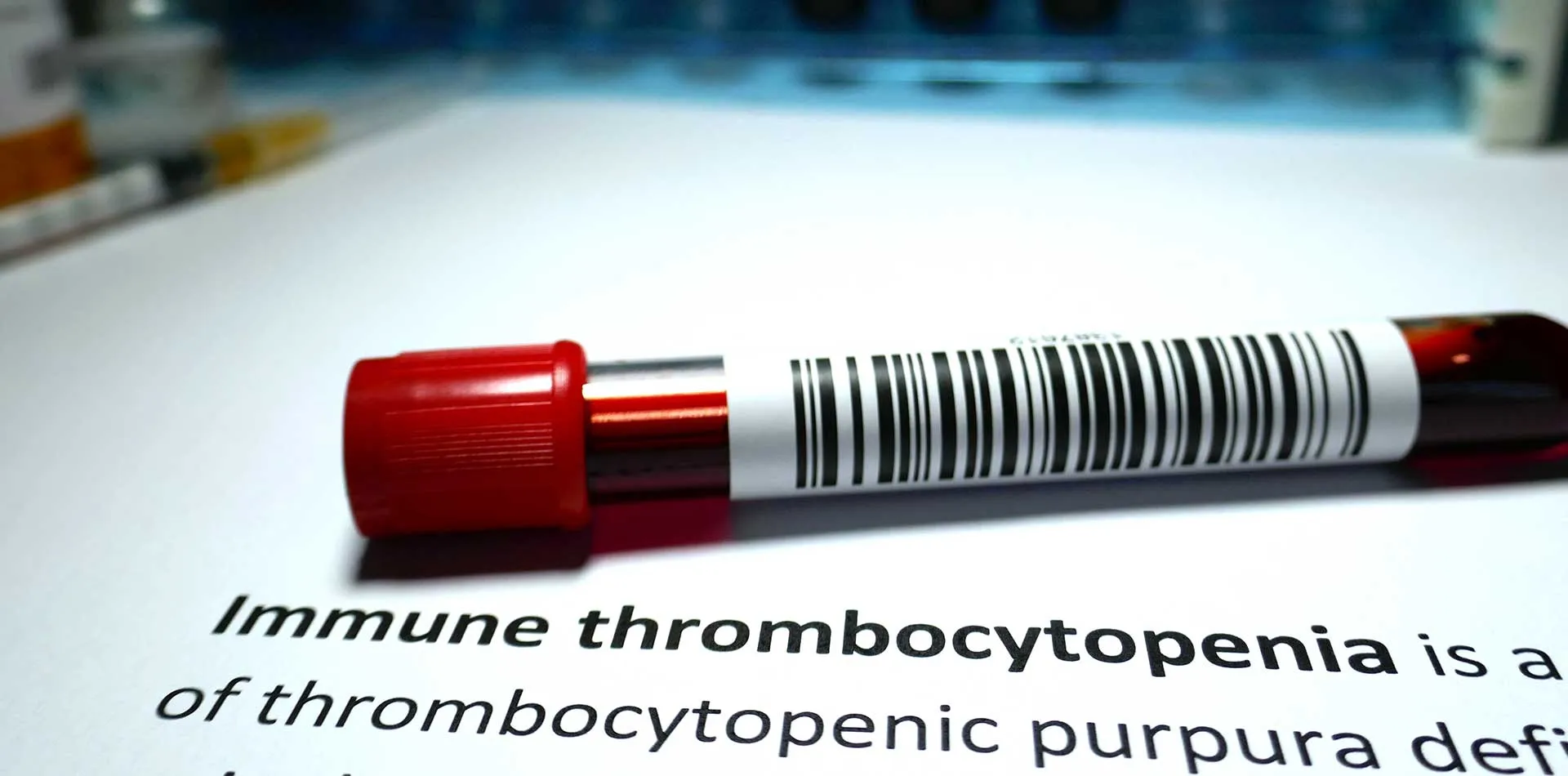
Immune thrombocytopenia is a condition causing easy or excessive bruising and bleeding. It happens because of deficient levels of platelets — the cells that help blood clot. Also called idiopathic thrombocytopenic purpura (ITP), the condition leads to purple bruises and tiny reddish-purple dots that seem like a rash.
Kids develop ITP following a viral infection but recover fully without treatment. In adults, the condition may last for a long term. Those who don't have the platelet count too low and don't show signs of bleeding may not need any treatment. When symptoms are critical, treatment is necessary as medications to boost platelet count or surgery to remove the spleen.
Immune thrombocytopenia usually shows no signs. When they do occur, it includes very heavy menstrual flow, easy or excessive bruising, or superficial bleeding into the skin that looks like reddish-purple spots similar to a rash on the lower legs. Also, there is bleeding from the gums or nose or blood in urine or stools.
Get doctors advice when you or your child have warning signs of concern. Bleeding that doesn't stop after first-aid techniques, like applying pressure to the area, should seek immediate help in a medical emergency.
Immune thrombocytopenia occurs when the immune system falsely strikes and destroys platelets that are cell fragments that support blood clots. It can trigger infections like HIV, hepatitis or H. pylori that causes stomach ulcers. For children, ITP disorder follows a viral illness, causing the mumps or the flu.
Young women are more prone to ITP, and people with diseases like rheumatoid arthritis, lupus and antiphospholipid syndrome are at greater risk.
A rare but fatal complication of immune thrombocytopenia happens when there is bleeding into the brain. Pregnant women with low platelet count and bleeding are prone to a higher risk of heavy bleeding during delivery. Consult a doctor for treatment advice to keep a stable platelet count, taking into account the outcomes on the baby.
Avoid contact sports like boxing, martial arts and football that have a higher risk of head collisions during the game and bleeding. Be cautious before using over-the-counter medications, like nonprescription drugs - aspirin and ibuprofen that impair platelet function.
Patient Experience